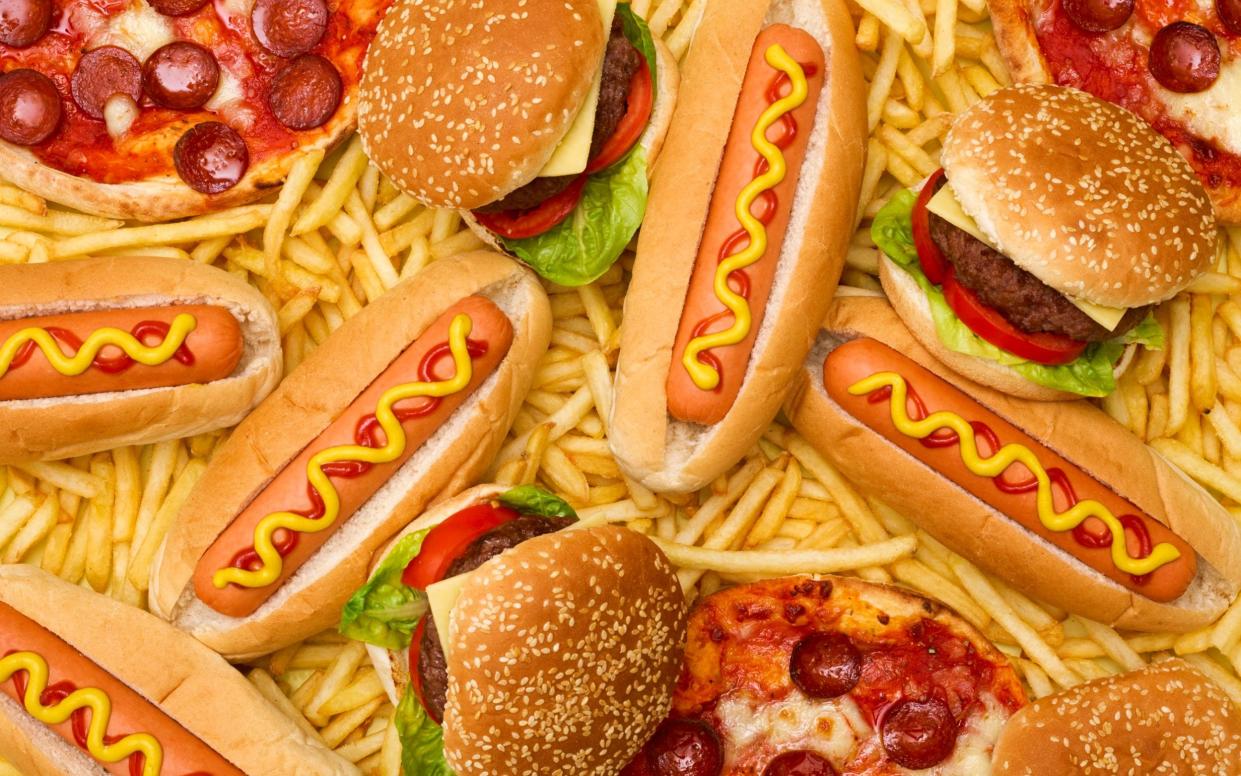Ultra-processed foods ‘should have tobacco-style warning labels’

Ultra-processed foods should carry tobacco-style “front of pack” warnings, one of the world’s leading experts is warning.
An obesity congress will on Thursday hear that such fare is now “pushing aside” all over food groups – and making up 57 per cent of calories in the British diet, with calls for a public health campaign warning of the dangers, and an advertising ban.
Prof Carlos Monteiro, professor of nutrition and public health at the University of Sao Paulo, will tell the International Congress on Obesity that ultra-processed foods (UPFs) are “dangerous by design”, fuelling a host of diseases which cut lives short.
The scientist, who devised the international system of food classification system which grades processed foods with colleagues, likened the processed food industry to tobacco giants, saying both put profits ahead of the dangers they cause.
He also called for a ban on sales of the foods to schools and hospitals, and extra taxes with revenue generated used to subsidise fresh foods.
Ahead of the address, Prof Monteiro said: “Both tobacco and UPFs cause numerous serious illnesses and premature mortality; both are produced by transnational corporations that invest the enormous profits they obtain with their attractive/addictive products in aggressive marketing strategies, and in lobbying against regulation; and both are pathogenic (dangerous) by design.”
It follows studies which have linked UPF consumption to 32 types of major illness, including cancer, diabetes, kidney and heart disease.
The scientist said that the business model for such foods, which now dominate the average diet in the both the UK and US, was based on cheap production and overconsumption, driving an obesity pandemic.
He said ready-to-consume, long-duration, hyper-palatable formulations of cheap food-derived substances and additives with little if any whole food were liable to displace all other food groups, if current trends continue.
Research shows that UPFs make up 57 per cent of calories in the UK diet, close to the 60 per cent reached in the United States.
Prof Monteiro and his colleagues were responsible for developing the Nova food classification, a system for grouping edible foodstuffs based on the extent and purpose of food processing applied to them.
On Thursday, the scientist will call for public health campaigns similar to those against tobacco to raise awareness of the dangers of UPFs, and “front of pack warnings” on packs similar to those used for cigarettes.
He will also say sales of such foods in schools and health facilities should be banned, with “heavy taxation” of the products, with the revenue generated used to subsidise fresh foods.
It follows research published in May which found that half of all cancer cases are linked to obesity.
The study of more than four million adults, who were tracked for decades, found excess weight could be fuelling more than 30 types of the disease.
The study led by Lund University in Malmo, Sweden, involved 4.1 million participants who were monitored for about 40 years, with close monitoring of their weight and lifestyle.
Over the period, 332,500 cancers were identified. In 40 per cent of cases, there appeared to be a link between excess weight and the development of cancer.
There are an average of 390,000 cancer diagnoses in the UK annually, meaning that around 150,000 of them could be linked to obesity.
Dietitian Dr Duane Mellor, a spokesman for the British Dietetic Association, said the research was interesting and brought together a wealth of evidence linking UPFs to diseases.
But he said: “It is not straightforward to draw parallels between the food industry and tobacco industry, as food is essential to life, tobacco is not.”
He also pointed out that some foods which are classified as ultra-processed under the Nova framework include soya-based foods like tofu which have been found to have health benefits, such as reducing cholesterol.
Dr Mellor, who is an honorary academic fellow at Aston University, said the research showed that reformulating foods high in fat, salt and sugar does not automatically make them healthier.
“This is perhaps best shown with soft drinks, where research does not suggest that either sugar sweetened drinks or non-sugar or artificially sweetened drinks are linked to positive health outcomes,” he said.
“So, it perhaps does suggest we might need to be mindful as we seek to support and promote communities to eat a healthy diet, that if reformulation of products is undertaken, we need to avoid unintended consequences or risks from the new food product, which might be lower in fat, sugar and/or salt but may not be as healthy an option as we might have been thinking up until now.”

 Yahoo News
Yahoo News 
